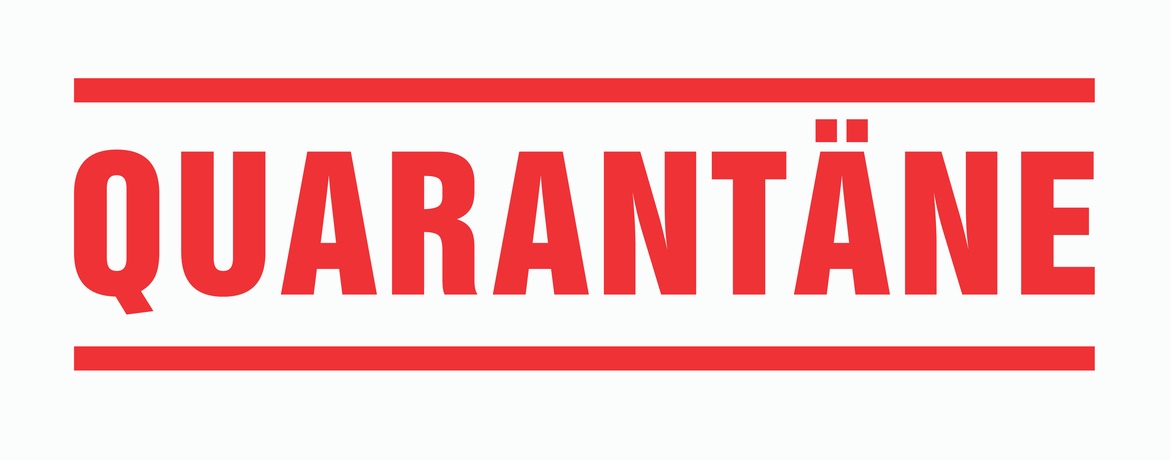With the current Omikron wave, the Corona pandemic is leading to infection figures in unprecedented numbers. At the same time, this is leading to an unprecedented number of employees having to go into quarantine on the instructions of the health authorities and on the basis of the Infection Protection Act (IfSG).
Those in quarantine are not allowed to leave the domestic area. This applies regardless of whether a disease is present or not. Free testing is currently possible no earlier than 7 days (as of early February 2022) after a positive test result.
For employers, the fact that employees are not allowed to show up for work due to quarantine also quickly raises labor law issues, such as: As an employer, do you have to continue paying employees in quarantine in any case?
We have therefore asked our expert on labor law, attorney Christian Seidel, some questions on this very topic.
Who pays when an employee has to go into quarantine?
Is there a simple rule of thumb that says: Employees in quarantine must always continue to be paid by the employer or not?
No, there is (unfortunately) no such rule of thumb. There are different criteria that determine whether an employee in quarantine must continue to be paid and by whom. Here, there are definitely differences depending on the situation.
In some cases, the employer must continue to pay salary as normal – with or without a claim for compensation against the state. In other cases, the employee is entitled to continued payment of wages in the event of illness. In still other cases, the employer does not have to pay for the period of quarantine.
Is the difference between “vaccinated” and “not vaccinated” relevant for these different scenarios?
Yes, the vaccination status of employees is one of several relevant criteria for determining whether the employer must continue to pay an employee in quarantine or whether it can claim state compensation for this payment, if applicable. In the future, even the criterion “boosted” or “not boosted” may become decisive.
What criteria determine whether and how employers must pay employees in quarantine?
First of all, the question is decisive: Has the employee caused his situation – i.e. having to go into quarantine – himself? This is the case if the employee has not been vaccinated – this has been the case since 01.11.2021. The same applies if he has to go into quarantine after returning from a high-risk area or virus variant area. In this case, however, the quarantine is only “self-inflicted” if the trip was avoidable and he knowingly traveled to a high-risk area or virus variant area.
The second criterion: Is the employee in quarantine fit for work or incapacitated for work? This is because even first-time (healthy) contacts may be required to be isolated if they have not yet been boosted.
And last but not least, the decisive factor for the question is: Can the employee in quarantine (at home) fulfill his or her work obligation in the “home office” or not.
Based on these criteria, when does the employer pay for an employee in quarantine?
Employers almost always pay in this situation – but for different legal reasons. In addition, employers sometimes have the option of receiving government compensation.
Basically, the scenarios differ as follows:
- An employee is quarantined through no fault or fault of his own. However, he or she is not incapacitated for work and can work from the home office. In this case, quasi-normal work is performed. In this case, the employer continues to pay the normal salary, but also receives the owed work performance.
- An employee has to go into quarantine through no fault or fault of his own, but is sick and unable to work. In this case, it does not matter whether it is possible to work from the home office. In this case, employees receive continued payment of wages in the event of illness, as is otherwise the case, i.e. initially from the employer. In the event of a longer illness, the employee is then paid by the health insurance fund.
- An employee has to go into quarantine through no fault of his own, is fit for work, but cannot work from the home office. This is conceivable, for example, if the employee works in production. In this case, the employer pays compensation equal to the employee’s normal salary for six weeks. However, he can have these costs reimbursed by the authorities according to § 56 IfSG. However, it is not entirely clear according to current case law whether this also applies to the first three to five days, because this is not a significant period of time according to Section 616 of the German Civil Code. This may currently become relevant if the quarantine periods are reduced to 4 days, for example.
- If an employee has to go into quarantine through fault, is fit for work but cannot work from home, the employer does not have to pay: in this case, the employee has a claim to compensation benefits under Section 56 IfSG, which the employer would have to serve. The claim for payment of compensation does not apply because the employee himself is responsible for not being able to fulfill his duty to work.
Questions about labor law?

Christian Seidel
Rechtsanwalt, Fachanwalt für Arbeitsrecht
Prokurist der Acconsis GmbH Rechtsanwaltsgesellschaft
Service-Phone
+ 49 89 547143
or by e-mail c.seidel@acconsis.de
Do you have any questions?
If you need support, please contact me.
I am happy to help you.
Questions about the latest Corona rules?
If you have any questions about this, or about labour law in general, I am happy to help. If you need assistance, please contact me.
I will be happy to help.

